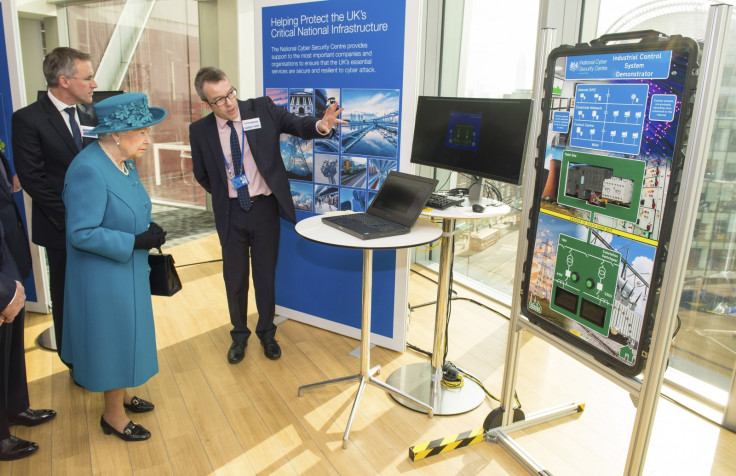Nerve centre for UK cybersecurity officially opens amid fears of growing Russian hacking
GCHQ-led National Cyber Security Centre officially opened by the Queen.
The UK's National Cyber Security Centre (NCSC) has officially opened amid promises of closer collaboration between Britain's spies and the private sector.
The aim of the NCSC is to help protect citizens and businesses from cybercrime and comes after recent warnings from national defence officials about Russian aggression in cyberspace. The operation is a new front in the UK's cybersecurity battle led by the signals intelligence agency, the Government Communications Headquarters (GCHQ).
The NCSC said on its website that the London premises would act as its nerve centre to help "enable generations to navigate the internet safely and be protected from the growing threat of online attack". The centre was officially launched by the Queen, accompanied by the Duke of Edinburgh.
The centre has been operational since October 2016, and has reportedly already responded to more than 180 significant attacks in the UK. It has also reportedly blocked nearly 35,000 potential attacks on government departments and the public.
At the launch, NCSC chief Ciaran Martin said: "We will help secure our critical services, lead the response to the most serious incidents and improve the underlying security of the internet through technological improvement and advice."
Martin, who is a former director of cyber at GCHQ, previously claimed hackers were increasingly "getting into the system to extract information on UK government policy". He said that in the past 24 months there had been a "step-change in Russian aggression."

In a perceived reference to the 2016 US election cycle hacks, he added: "Part of that step-change has been a series of attacks on political institutions, political parties, parliamentary organisations, all very well evidenced by our international partners."
Philip Hammond, the Chancellor, told those at the launch that the government was also launching the "Industry 100" scheme which would employ and train private sector staff to work in the NCSC on collaborative projects.
He explained: "We will invite business to send up to 100 employees to come and work in the NCSC – allowing us to draw on the best and the brightest in industry – to test and challenge the government's thinking. These people [will] then return to the private sector and draw on their experience at NCSC to drive change within industry."
NCSC technical director Dr Ian Levy added: "We're actively working to reduce the harm caused by cyberattacks against the UK and will use the government as a guinea pig for all the measures we want to see done by industry at national scale.
"This includes everything from free website vulnerability scanning for public sector and proactively taking down tens of thousands of phishing sites, to our world-leading 'CyberFirst' campaign to encourage teenagers to become tomorrow's cybersecurity pioneers."
GCHQ is one of three UK intelligence agencies operating in the UK and is the British equivalent of the American National Security Agency (NSA). In 2013, its profile was thrust into the limelight following the Edward Snowden revelations.
These detailed a programme of spying on a bulk scale and on citizens not suspected of committing any crime. Spying programmes, with codenames like "Tempora" and "Karma Police" detailed the collection of huge amounts of phonecalls, emails and web records.
© Copyright IBTimes 2025. All rights reserved.






















